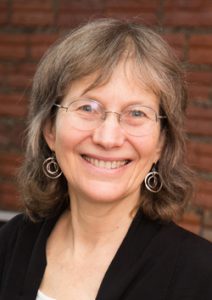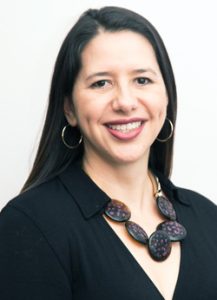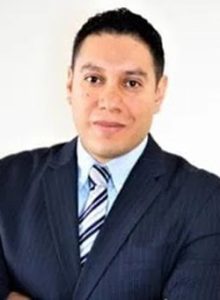The Whole Is Greater Than The Sum Of Its Parts: Using Neurofeedback And Biofeedback For Developmental (Complex Childhood) Trauma
Dr. Ainat Rogel
Dr. Diana Martinez
Dr. Leon Morales-Quezada
2-day workshop
Date: April 12, 13, 2024
Workshop Title
The Whole Is Greater Than The Sum Of Its Parts: Using Neurofeedback And Biofeedback For Developmental (Complex Childhood) Trauma
Workshop Description
Using an integrated approach of neurofeedback and biofeedback modalities has been found to be effective for people with developmental trauma (or complex childhood trauma). Developmental trauma has been shown to have a long-lasting adverse pervasive disruption of neuropsychological functions, which can cause social, emotional and cognitive impairment leading to a shortened expected lifespan. This suggests that state-of-the-art treatment modalities, in particular neurofeedback and biofeedback, are promising treatment modalities to effectively regulate the neurophysiological functions. Indeed, in clinical settings, a holistic approach combining neurofeedback, biofeedback, and trauma psycho-therapy, has been shown to be effective for treating people with developmental trauma. This workshop focuses on the clinical aspects of integrating neurofeedback with several different types of biofeedback (including EEG, heart-rate, respiration, peripheral temperature, skin conductivity and muscle tension). Specifically, we highlight the strengths, challenges, and ways to integrate them. We discuss in depth the treatment process: ways to measure the impact of developmental trauma on the neurophysiological functions, and use these measurements to create a treatment plan. We also use these measurements during a session to make adjustments based on the client’s improvement and adverse reactions. In addition, some of the many challenges of working with clients with dissociation, and ways to address them will be discussed. Through a variety of examples and case presentations, the clinical aspects are reinforced with a review of the impact of developmental trauma and relevant neurofeedback research. The workshop concludes with a discussion on future directions and challenges.
Learning Objectives
1) Define developmental trauma (DT) and its impact on the neurophysiological functioning.
2) Integrate neurofeedback and a variety of biofeedback modalities to treat people with developmental trauma.
3) Utilize neurophysiological activities as assessment tools to assess the impact of developmental trauma, develop an effective treatment plan, and to track the impact of the neurofeedback/biofeedback treatment.
4) Identify dissociation, its neurophysiological manifestation, and ways to effectively use them in the session.
About Ainat Rogel, PhD, MSW, BCN, LICSW
Ainat is the founder and director of Boston Neurodynamics. She conducts neurofeedback (NFB), biofeedback (BFB), performs and analyzes brain mapping (qEEG), and supervises other practitioners. She teaches NFB related courses, gives international presentations, and conducts evidence-based research. Ainat specializes in working with clients with developmental trauma, dissociation and PTSD. Her unique holistic approach incorporates NFB with BFB, psychotherapy and body therapy. Ainat is on ISNR (International Society for Neuroregulation and Research) Board Of Directors (BOD) advisory board. She also served as the president and a BOD member of ISNR.
Ainat has a PhD in Computer Science and Neurobiology. She has a master in Social Work, a licensed Independence Clinical Social Worker, and a BCIA certified NFB provider and supervisor. She was a brain research scientist at various institutions including Massachusetts Institute of Technology, the Martinos Center for Biomedical Imaging at MGH-Harvard, Hebrew University and Ben-Gurion University. She worked as a NFB researcher and clinician at the Trauma Center at JRI.
About Diana Martinez, MD, PhD, LMHC, BCN
Diana is a founder and director of Boston Neurodynamics. She is a medical doctor with a specialty in Neurorehabilitation. She has 18 years of experience treating patients with severe brain injuries and developmental disorders using neurofeedback, biofeedback and neuromodulation techniques. She has extensive experience in neurophysiology and EEG/qEEG/ERP interpretation.
Diana received her medical degree from University of Aguascalientes, Mexico. She completed a Fellowship in Neurological Rehabilitation and M.Sc in Neurological Rehabilitation; a Fellowship in Neurophysiology at University Hospital of Cleveland; and a PhD from De Montfort University of Leicester, U.K. She is an international consultant for Neurofeedback professionals and currently she combines clinical work and research. She is a certified clinician from the SMART (Stress management and resilience training) program from the Benson-Henry Institute/Massachusetts General Hospital integrative Medicine. Diana was the secretary of ISNR (International Society of Neuroregulation and Research).
About Leon Morales-Quezada, MD, PHD, MPH, BCN
Dr. Leon Morales-Quezada is a physician-scientist with experience in neurocognitive rehabilitation, noninvasive neuromodulation, applied psychophysiology, and technology development for neurological rehabilitation. Dr. Morales-Quezada received his MD degree from Universidad Autonoma de Aguascalientes and completed clinical training in emergency medicine and intensive care. He also completed a fellowship and Masters in Neuropsychology Rehabilitation at Touro College, a PhD in Cognitive Neurosciences from De Montfort University in Leicester UK, and a Master’s in Public Health from Harvard School of Public Health. Dr. Morales-Quezada completed a fellowship in Integrative Medicine from the Harvard-NIH program, at the Division of General Medicine and Primary Care at Beth Israel Deaconess Medical Center (BIDMC) and Spaulding Rehabilitation Hospital (SRH), Harvard Medical School. Dr. Morales-Quezada research interests focus on noninvasive neuromodulation, the placebo effect, and technology development applied in rehabilitation and behavioral medicine.



